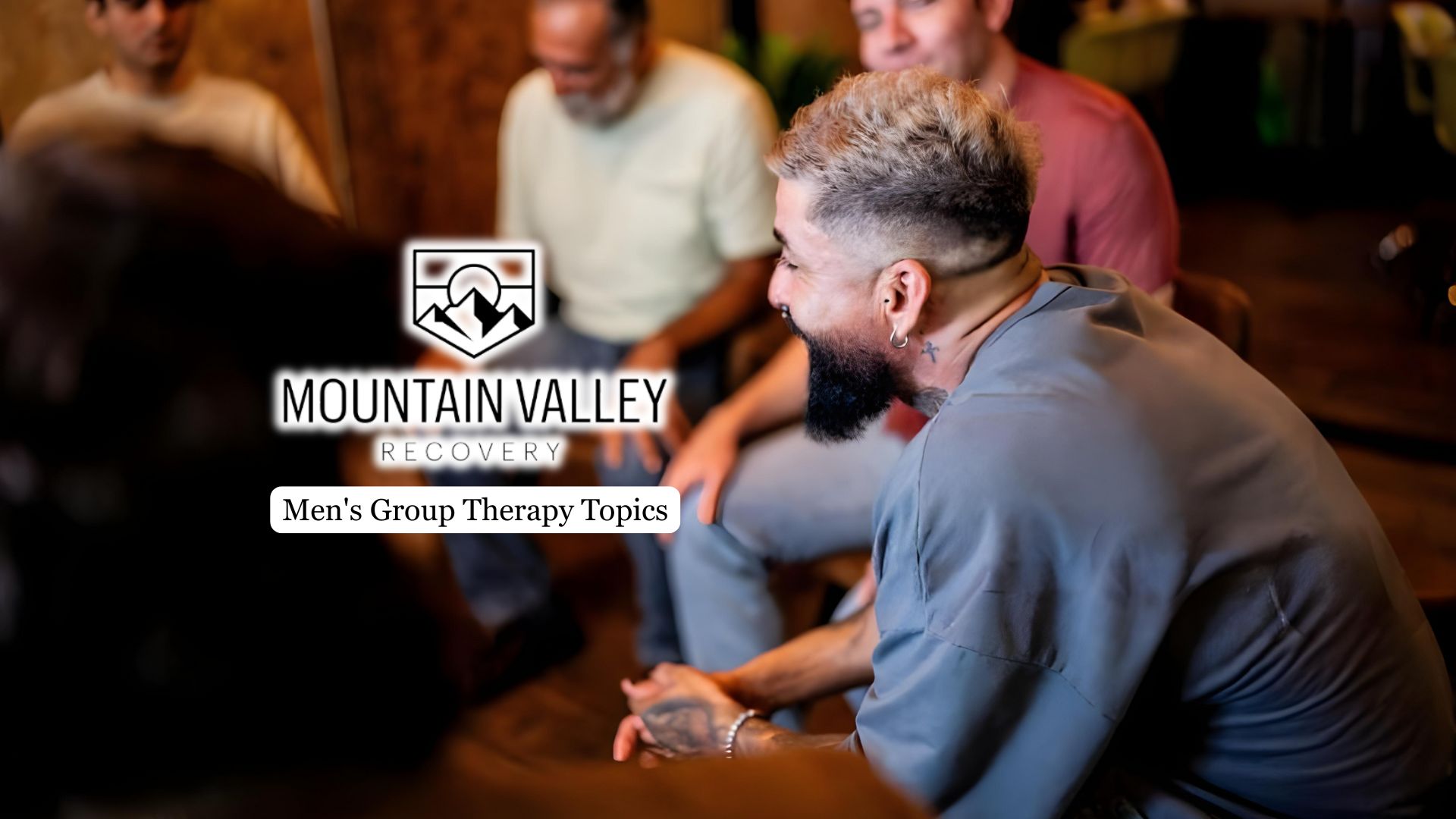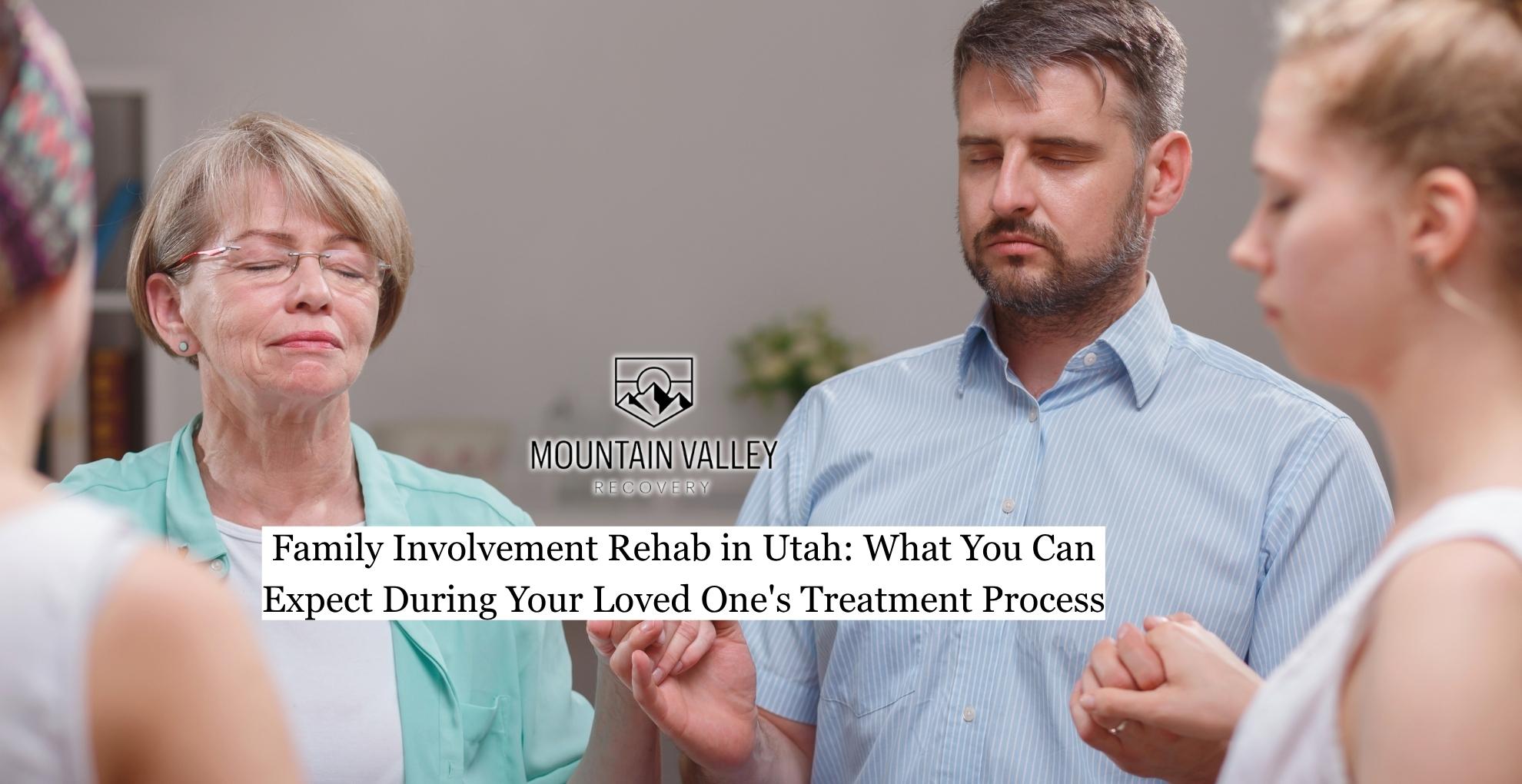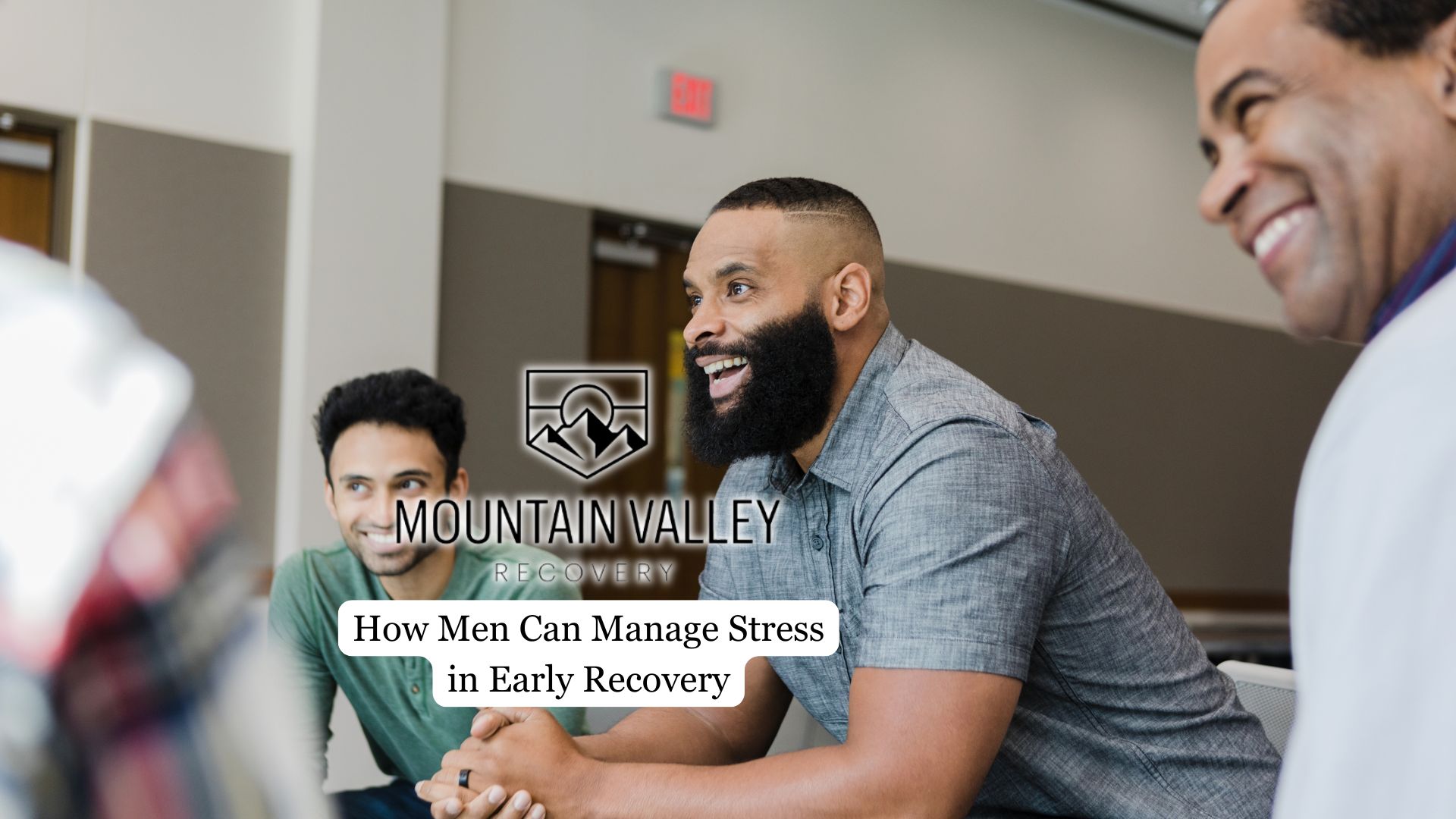Men’s group therapy provides a structured environment where men can explore emotional expression, challenge societal norms, and develop healthier coping and communication skills. Group therapy can improve men’s mental health outcomes by fostering peer support, reducing stigma, and promoting personal growth.
This article will tackle the key topics commonly addressed in men’s group therapy, which are each grounded in evidence-based practices.
What Is Men’s Group Therapy?
Men’s group therapy involves facilitated sessions where men gather to discuss personal challenges, share experiences, and develop skills in a confidential, supportive setting. Groups may focus on issues such as mental health, addiction recovery, trauma, or relationship difficulties.
Men often benefit from single-gender groups, which can create a safer space to express vulnerability and break down traditional masculine norms that discourage emotional openness. It yields higher satisfaction and better engagement compared to mixed-gender or peer-led groups.
Our professionally led men’s only group therapy in Holden, UT, fosters accountability and connection, empowering members to support one another and stay committed to lasting recovery.
Topics Discussed During Men’s Group Therapy
Emotional Expression and Vulnerability
Societal norms often equate masculinity with emotional restraint, which can contribute to increased rates of anxiety, depression, and social isolation among men. Men typically underreport emotional distress and are less likely to seek help compared to women.
Men’s group therapy creates a safe space where participants can practice expressing emotions without judgment, which has been linked to improved psychological well-being and reduced feelings of loneliness. Encouraging vulnerability within the group challenges traditional masculine stereotypes and fosters empathy and connection among members.
Navigating Relationships and Communication
Difficulties in communication and emotional intimacy are common challenges for many men. Group therapy offers opportunities to discuss struggles related to expressing needs, setting boundaries, and resolving conflicts.
Men who participate in group therapy improve their interpersonal skills, leading to healthier relationships with partners, family, and peers. Role-playing and group feedback help members develop practical communication strategies, while shared experiences normalize challenges and reduce shame.
Societal Expectations and Masculinity
The concept of the “man box” — a set of rigid societal expectations that define masculinity in terms of stoicism, dominance, and emotional suppression — has been linked to negative mental health outcomes. Men’s group therapy addresses these cultural pressures by encouraging critical reflection and dialogue about how such norms affect emotional health and behavior.
Challenging these norms within a supportive group setting promotes more flexible and authentic expressions of masculinity, which correlates with reduced aggression, better stress management, and increased help-seeking behavior.

Mental Health Awareness and Support
Men are statistically less likely to seek mental health treatment, partly due to stigma and cultural expectations. Group therapy helps reduce this stigma by normalizing discussions about anxiety, depression, substance use, and other mental health concerns.
Peer support in group settings enhances engagement and retention in treatment. Men’s groups emphasize emotional safety and mutual support, enabling participants to share coping strategies and encourage one another to access professional resources when needed.
Personal Growth and Goal Setting
Personal growth and goal setting are essential components of men’s group therapy, where you can actively engage in shaping your future. In this supportive environment, you’ll set achievable goals and develop strategies for self-improvement.
Sharing experiences about breaking bad habits and learning new skills fosters a collective journey of self-discovery. The group dynamic encourages the exchange of tips for overcoming obstacles, helping you celebrate victories and learn from setbacks.
Emotional safety promotes honest discussions about personal challenges, allowing you to reflect on your journey and identify areas for improvement. By sharing stories of resilience, you inspire each other to maintain motivation and commitment to your personal growth goals, ensuring you’re not alone in this transformative process.
Addressing Trauma and Emotional Wounds
Many men enter group therapy carrying unresolved trauma or emotional wounds that affect their behavior and relationships. Group settings provide a supportive environment to explore these issues safely.
Trauma-informed care within men’s groups help participants recognize the impact of past experiences on current functioning and develop healthier coping mechanisms. Research shows that processing trauma in a group context can reduce symptoms of post-traumatic stress and improve overall mental health.
Building Healthy Masculine Identities
Men’s group therapy often includes exploration of what it means to be a man in contemporary society. Participants examine and reconstruct their masculine identity beyond traditional stereotypes, incorporating traits such as empathy, vulnerability, and cooperation.
This process supports psychological flexibility and reduces internal conflicts related to gender role expectations. Studies indicate that men who develop healthier masculine identities report better emotional well-being and interpersonal relationships.
Enhancing Stress Management and Coping Skills
Stress and maladaptive coping are common contributors to mental health challenges in men. Group therapy provides education and practice in evidence-based stress management techniques, including mindfulness, relaxation exercises, and cognitive restructuring.
Learning and applying these skills within a supportive group context improves resilience and reduces reliance on harmful coping strategies such as substance use or aggression.
Common Challenges in Men’s Group Therapy
- Emotional Suppression
Many men struggle to open up due to societal norms around masculinity, making it hard to express vulnerability or talk about feelings. - Trust and Safety
Building trust in a group setting can take time, especially for men with histories of trauma or betrayal. - Fear of Judgment
Worry about being judged or appearing “weak” may prevent full participation in discussions or emotional sharing. - Competition or Comparison
Some men may view others in the group competitively, which can create tension and hinder collaboration. - Difficulty Accepting Help
Accepting support from peers or facilitators may feel uncomfortable, especially for those used to being self-reliant.
Final Thoughts from Mountain Valley Recovery
Men’s group therapy is a powerful part of recovery, offering a safe, therapeutic space to explore emotions, challenge harmful patterns, and build healthier relationships. At Mountain Valley Recovery, our licensed clinicians guide structured group sessions that foster connection, accountability, and emotional growth—key pillars for long-term sobriety.
We combine evidence-based therapies with hands-on experiences like farm work and trade skills training. From CDL licensing and welding to relapse prevention and individual counseling, our long-term program equips men with the tools, confidence, and support system they need to overcome addiction and reclaim their future.





